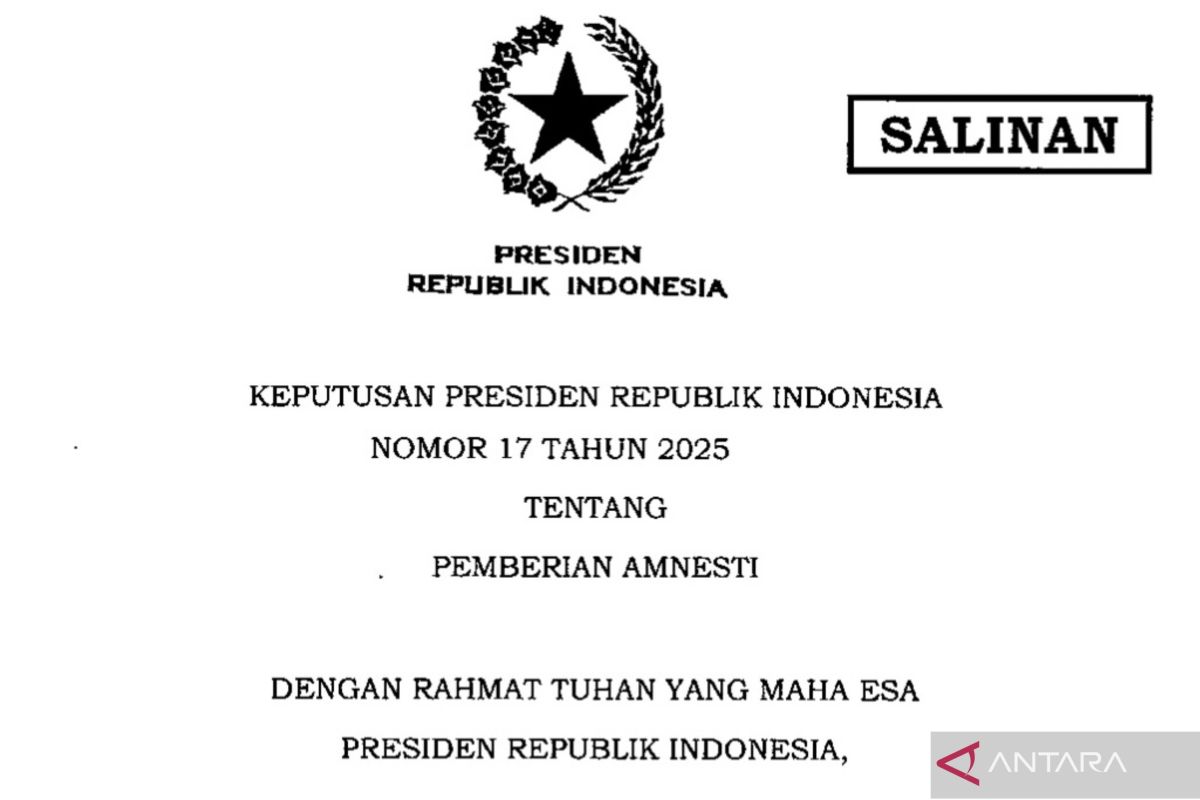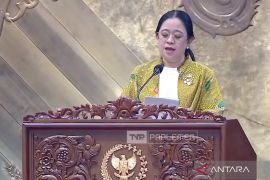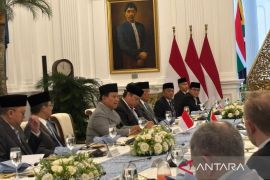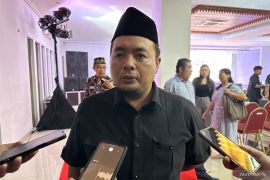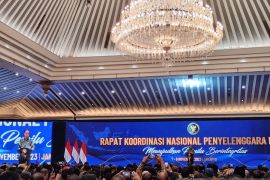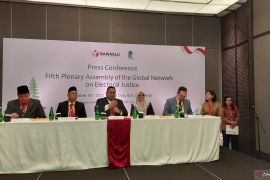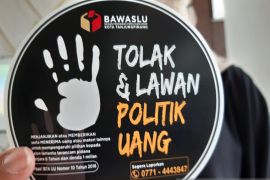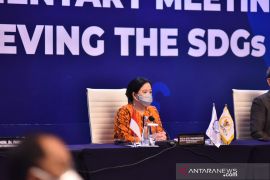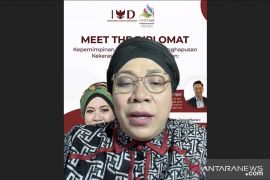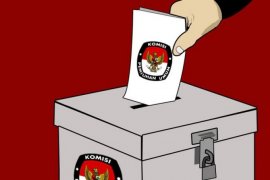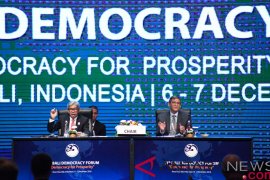President Prabowo Subianto, in his eight-priority agenda known as Asta Cita, stated that “strengthening the ideology of Pancasila, democracy, and human rights” remains the administration’s top priority.
Accordingly, prioritizing human rights in all areas—including law enforcement—has become central to the administration’s mission.
During the first year of his tenure, the commitment to upholding human rights within the legal system began to materialize through several significant policies.
One of the most notable actions occurred just a month after the inauguration: the transfer of death row inmate Mary Jane Veloso to her home country, the Philippines, under a prisoner transfer policy.
This move sparked controversy, as Indonesia is considered to lack a comprehensive legal framework governing prisoner transfer mechanisms.
Nevertheless, Mary Jane’s transfer was carried out based on humanitarian considerations. The decision allowed her to reunite with her family more frequently and facilitated the resolution of her alleged human trafficking case in the Philippines.
The repatriation, widely supported by international human rights activists, who view Mary Jane as a victim of trafficking, was welcomed by the global community, which had long advocated for her return.
This approach continued with the transfer of other prisoners, including Serge Areski Atlaoui, who was sent to France, and five members of the Bali Nine, who were returned to Australia.
Atlaoui’s transfer was based on health grounds, as he is suffering from cancer. The Bali Nine members were transferred on humanitarian grounds, considering the severity of their sentences.
As part of the transfer agreement, however, these individuals are permanently barred from reentering Indonesia.
To provide a strong legal basis and ensure legal certainty, the government and the House of Representatives (DPR) have agreed to include legislation regarding prisoner transfers in the 2026 Priority National Legislation Program (Prolegnas).
Death Penalty Abolition
Given that many of the transferred foreign prisoners were on death row, the prisoner transfer policy is widely interpreted as an early step toward the gradual abolition of the death penalty in Indonesia.
This interpretation aligns with President Prabowo’s public statement during an interview with a senior journalist in April 2025, where he expressed his opposition to capital punishment, emphasizing its irreversibility and potential for wrongful convictions.
“The death penalty is final, and we cannot bring them back to life. Even if we are 99.9 percent sure of someone’s guilt, there is still a chance that the person was framed or is a victim,” said Prabowo.
Globally, the death penalty is considered cruel, inhumane, and a violation of human dignity, making its abolition consistent with international human rights norms.
Since 1971, the United Nations General Assembly has consistently pushed for its global abolition.
Although Indonesia still retains the death penalty—arguing that it protects public safety and respects the rights of victims—executions have not been carried out since 2016. The last were in the case of four individuals convicted of drug trafficking: Freddy Budiman, Michael Titus Igweh, Humprey Ejike (Nigeria), and Gajetan Acena Seck Osmane (South Africa).
Concrete progress toward abolition is reflected in Law No. 1 of 2023 concerning the new Criminal Code (KUHP), which will be implemented on January 2, 2026.
Under this law, the death penalty becomes an alternative sentence. It may be commuted to life imprisonment if the convict shows good behavior during a 10-year probationary period and meets other specified conditions.
Pardons and Amnesty
The government’s commitment to human rights is also evident in its approach to pardons, including amnesty and abolition of charges. In early 2025, the administration announced a plan to grant amnesty to 44,000 eligible prisoners, especially those convicted of non-violent crimes, based on humanitarian considerations.
Amnesty, a presidential pardon for individuals or groups convicted of specific crimes, is a tool to end conflict, build peace, and protect the rights to life and liberty.
In cases involving political prisoners or flawed trials, amnesty serves as a way to restore justice. After a multi-stage verification process, President Prabowo granted amnesty to 1,178 inmates.
To public surprise, the list included Hasto Kristiyanto, Secretary General of the Indonesian Democratic Party of Struggle (PDI-P), who had been sentenced to 3 years and 6 months in prison and fined Rp250 million (US$14,000) for obstructing justice in a bribery case involving Harun Masiku.
Also granted amnesty was Tom Lembong, Minister of Trade from 2015–2016, who had been sentenced to 4 years and 6 months and fined Rp750 million (US$43,000) for involvement in a sugar import corruption case that allegedly caused state losses of Rp194.72 billion (US$11 million).
The president also holds the authority to grant abolition—the termination of ongoing legal proceedings—after considering advice from the House of Representatives. This power is especially relevant in politically motivated cases or those with potential human rights violations.
President Prabowo’s decision to grant amnesty to Hasto was intended to ensure that law enforcement remains free from political interference. Meanwhile, Lembong’s amnesty was viewed as a corrective measure, as the case lacked sufficient evidence of intent or mens rea.
Both cases were presented as steps toward national reconciliation.
Demonstrations and Legal Safeguards
In August 2025, the Jakarta Metropolitan Police named four activists as suspects following a demonstration that turned violent. The individuals—Delpedro Marhaen (Lokataru Foundation Director), Muzaffar Salim (Lokataru staff), Syahdan Husein (Gejayan Memanggil), and Khariq Anhar (Aliansi Mahasiswa Penggugat)—were accused of inciting unrest via social media during protests near the parliament building.
Despite the accusations, the government did not remain passive. The Coordinating Minister for Law, Human Rights, Immigration, and Corrections, Yusril Ihza Mahendra, visited the detained activists to ensure their basic rights were respected.
The government also assured the public that there would be no interference in the legal process, including ongoing pretrial motions. Delpedro and his colleagues have filed a pretrial motion seeking to have their suspect status declared invalid and without legal basis.
In response to the incident, President Prabowo welcomed the initiative by six state institutions to form an independent, non-judicial investigative team—considered to have greater neutrality and authority than the previous Joint Fact-Finding Team (TGPF).
This independent team, led by the National Commission on Human Rights (Komnas HAM), aims to complete its investigation into the August riots by early December, focusing not just on individual responsibility but also on systemic issues and public interest.
Conclusion
In its first year, the Prabowo administration has made notable progress in aligning law enforcement with human rights principles. From the prisoner transfer and pardon policies to steps toward abolishing the death penalty and ensuring fair treatment for protest activists, the government has demonstrated a concrete commitment to a more humane legal system.
While challenges and criticisms remain, these policies reflect a significant shift toward a more just, democratic, and civilized legal framework—consistent with the values of Pancasila and democratic governance.
Related news: Indonesia prioritizes human rights in Mary Jane's case: Legislator
Related news: Human Rights Ministry reflects Prabowo's Constitutional loyalty: Pigai
Editor: Rahmad Nasution
Copyright © ANTARA 2025
